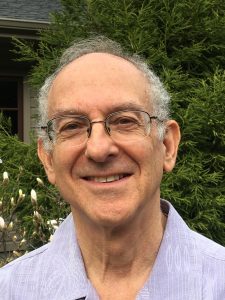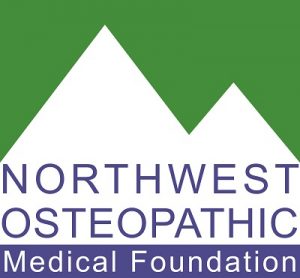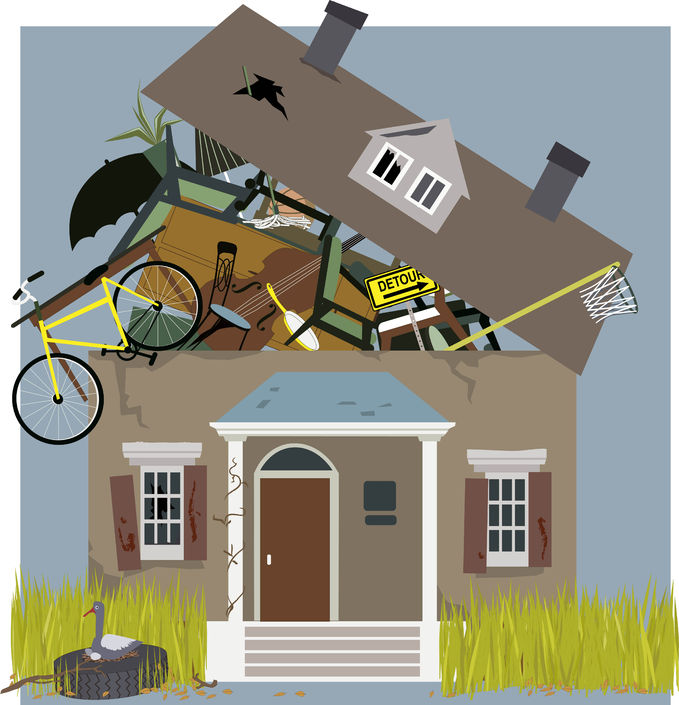EDITOR’S NOTE: The Tillamook County Pioneer is pleased to announce our newest column “In Good Health” by the Northwest Osteopathic Medical Foundation. We are proud that NWOMF selected the Pioneer as it’s first media partner to increase their outreach and education about osteopathic medicine and general wellness. Weekly columns will focus on particular topics each month. If you have suggestions for health/wellness articles, please contact editor@tillamookcountypioneer.net.
Welcome back! Last week we read a heartbreaking story from Maggie Cook. Our hearts really went out to her and her family, didn’t they?
This week, we hear from a man who blogs anonymously as well, about his life growing up with parents who were hoarders. He will tell us what his life was like, and how that impacted him as a child, and eventually as an adult.
By Anonymous Contributor on June 19, 2018 in Health Care Issues
I was raised by hoarders. Not like what you see on TV exactly. No piles of rotting garbage or rodents running around. But it was still hoarding. What began as a garage full of junk started migrating through the house room by room. It affected me as a child and I carry those effects into my adult life.
I don’t blame my parents. I believe they did they best they could dealing with their own issues. But I didn’t know that at the time. All I understood at the time was that I couldn’t have friends over to play. Only rarely did my grandparents or other family come to visit. I was ashamed and embarrassed, even angry sometimes. I knew we were different from other families, but it was just the way things were.
The positive thing that came from this was I spent a lot of time playing outside. My father also worked the graveyard shift for much of my childhood, so playing inside our small home was already limited. We had a big open field, several acres at least, where we could build forts and make bike jumps and let our imagination run wild. We didn’t eat dinner at the table because it was always covered with stuff, but Mom could still cooked and we could still wash the dishes. The bathroom had a lot of extra stuff, but we could shower, do laundry and use toilet.
As I got older, I learned to live as much as possible without being home. Having a car and the independence to visit friends took away much of the shame and embarrassment. I learned to associate being home with ‘anxiety’ and being ‘on the go’ as normal. But as my sister and I spent more and more time away from home, the hoarding just got worse and worse. Christmas break from my freshman year of college was the last time I could still sleep on my bed and by the next summer my room was full to the ceiling. It was also the last time I saw the inside of my parents home. That was almost 40 years ago.
When I was growing up, I don’t think anyone would have considered my parents as “mentally ill”. Eccentric perhaps, because they never invited anyone to their home, but good people. But I look at my own physical and mental health issues and wonder if this childhood didn’t have at least some effect on my life. I don’t have a diagnosis of OCD, but I’m certainly borderline in many of my behaviors. To this day, clutter around the house, in my car or around my office is a trigger to my anxiety. “A place for everything and everything in it’s place” should have been the 11th Commandment! It is very difficult for me to invite people into my home (or car or office) without a lot of anxiety and obsessively putting things away.

Naturally, I fight my own demons when it comes to hoarding. Food is where I see it the most; my portions are always too big. Plus I feel the need to always clean my plate, then go back for more. I always have too many clothes, too many tools, too many books. Fortunately, when I no longer have a place for everything, I can give things away, but the collection process always seems to start again. Career opportunities has caused me to move every 5 to 7 years of my adult life, but I shutter to think what I would be like If I have live the past 40 years in the same home. Would I be my parents?

Yes….it seems as though children can certainly be affected by both their inherited genes and by their environmental and life experiences. Mental illness is not always black or white but rather many shades of grey. So as you discuss whether or not your parents would be considered mentally ill…you would probably find many different opinions. The more specific condition of obsessive compulsive disorder (OCD) has also many variations. Obsessions are repeated thoughts, urges, or mental images that cause anxiety like fear of germs, or having things symmetrical or in a perfect order or aggressive thoughts toward other or self. Compulsions are repetitive behaviors that a person with OCD feels the urge to do in response to an obsessive thought like excessive cleaning or handwashing or ordering and arranging things in a particular, precise way or checking on things repeatedly. A person with OCD generally cannot control his or her thoughts or behaviors, spends at least 1 hour a day on these thoughts or behaviors, does not get pleasure when performing the behaviors (but may feel brief relief from the anxiety the thoughts cause, and experiences significant problems in their daily life due to these thoughts or behaviors). Symptoms may come and go. So if you think you have OCD…talk to your doctor. And you can also find information on the ADAA (Anxiety and Depression Association of America) website at https://adaa.org/screening-obsessive-compulsive-disorder-ocdIf you are concerned that you might have anxiety disorder or OCD, there are many tools to help with anxiety and/or OCD. Psychotherapy or counseling can be helpful. Medications may be useful. Exercise helps some. A plant based diet has been shown to improve mood. Mindfulness training and meditation have helped many (consider the reading The Mayo Clinic Guide to Stress Free Living by Amit Sood MD. Consider practicing meditation with Jon Kabat-Zinn MD or Tara Brach PhD.
About Charles Ross
Charles S. Ross DO board certified in Family Practice and Emergency Medicine. Currently practicing Lifestyle Medicine. Has been a practicing physician in Oregon for 40 years. Currently, 1/2 time Assistant Professor of Emergency Medicine at COMP NW. Practicing Lifestyle Medicine in Oakridge, OR one day per week. Teaching total health improvement classes for free weekly in Oakridge and online for those with computers.

For more information about NWOMF see their website at www.nwosteo.org, or David Tate, Executive Director at tate@nwosteo.org or Linda Tate, Communications Director at linda@nwosteo.org, or call 503.263.7878.
The Northwest Osteopathic Medical Foundation is a public charity committed to Advancing Wellness through the Osteopathic Approach. As a charity, we do not represent any medical school, medical association, medical practice, or individual physician.
This blog should not be considered to be medical advice. Your personal health is best discussed one-on-one with your personal physician. Rather, this blog is intended to highlight the distinctive philosophy and practice of osteopathic medicine as expressed by the author and does not necessarily represent the opinion of the Northwest Osteopathic Medical Foundation, or other Osteopathic physicians. The information and opinions are solely those of the author.


